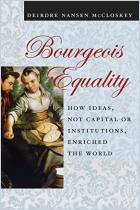
The Theory of the Leisure Class
Read or listen offline
Recommendation
This may not be a book to read for recreation, unless you like 1890s verbal locutions, but there are other reasons to read it. The emergence of the economic analysis of Western society might intrigue you. You might discover the origins of such still useful terms as "leisure class" and "conspicuous consumption," among others. You might be curious about author Thorstein Veblen’s status-conscious, anachronistic world of working men and idle wives, which reflects upper-class society in his day. Published in 1899, this is a classic in sociology and economic literature, although it is a veritable dreadnought of density. It discusses property, ownership, status and leisure in a turn-of-the-last-century American context. Though scholars call it a "satire," the book is hardly witty or ironic. Instead, it is a stolid analytical daguerreotype of a world long gone. getAbstract suggests that if you tackle Veblen’s old-fashioned, slow-flowing prose, you should do it for the background you may glean and the scholarly satisfaction you may feel when you are done. Instead of Alexander Pope’s, "What oft was thought but ne’er so well expressed," this book presents what oft was said and usually better, but not as early.
Summary
About the Author
Thorstein Veblen taught at the University of Chicago, Stanford University and the University of Missouri before co-founding the New School for Social Research in New York.



















Comment on this summary or Diskussion beginnen